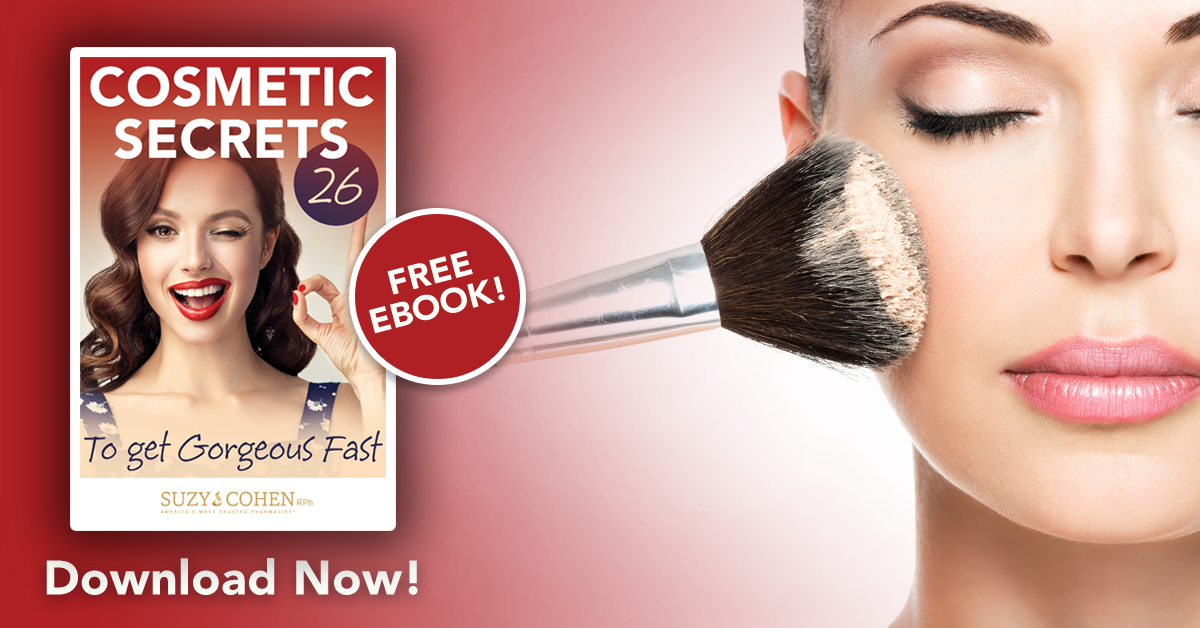What's On This Page?
ToggleWe as humans make our own collagen naturally by utilizing amino acids. Those amino acids (aka peptides) are the smaller particles that come from the protein we eat. We then string together all kinds of proteins that we need for our bodies.
Collagen is Your Own Anti-Aging Compound
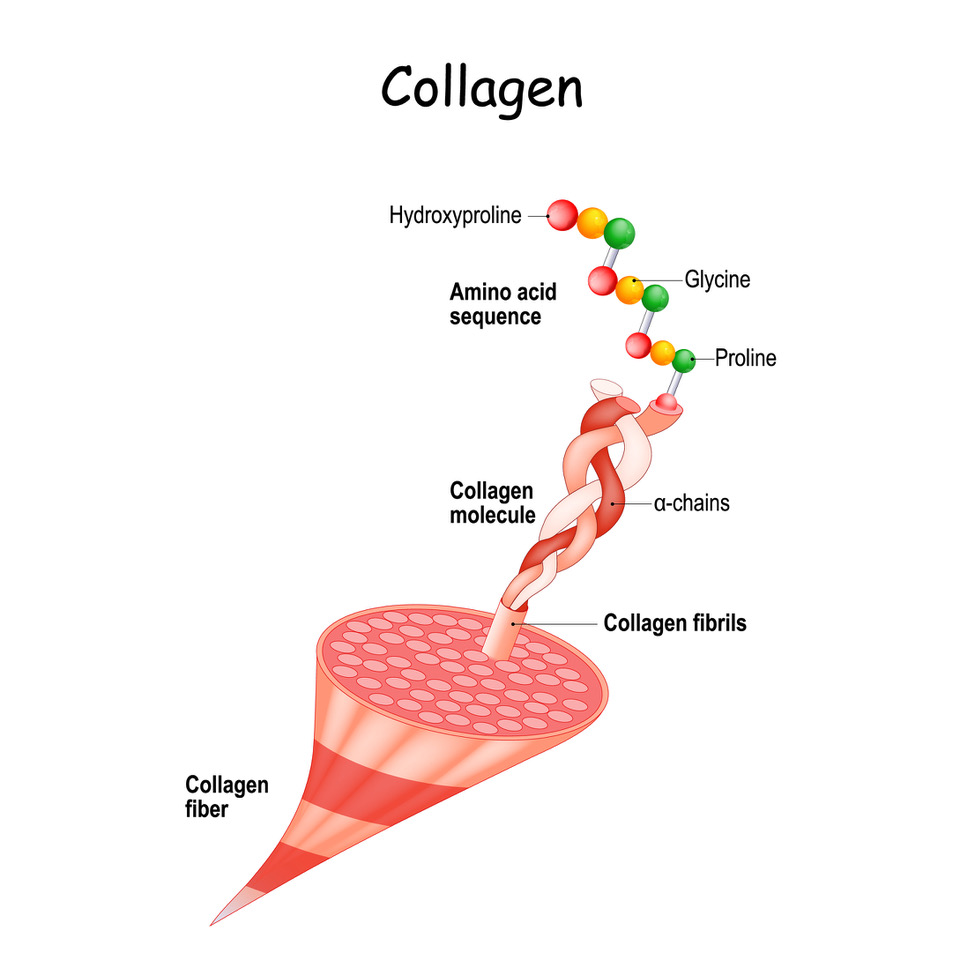
One of these proteins is collagen and we make it from 4 different amino acids as follows:
1. Glycine
2. Proline
3. Hydroxyproline
4. Alanine
Topical collagen peptides, like those sold in face creams, wound healing ointments and facial serums have a lot of clinical research to support their use in the dermal layer.
Orally bioavailable collagen is not sold as a dietary supplement, although many people think it is. In other words, if you’re buying a “collagen supplement,” you’re really taking care of the 4 peptides that your body uses to string collagen together.
If you’re interested in the difference between face cream, sleep masks and serums, you will be interested in my other article which is posted HERE. All of these work well with a COLLAGEN SKINCARE SUPPLEMENT.
Does Collagen Make It Through the Gut
Collagen itself – as one neat molecule- will not survive through the stomach acid after you take it, so therefore it is not sold as a dietary supplement. You can boost collagen production in the body by taking dietary supplements of collagen peptides, as well as vitamin C which is required as a cofactor to drive the reaction.
There are patented, proprietary forms of collagen peptides that are clinically studied for benefits in the skin, and those can (and should) be taken orally. So study and become well informed if you decide to supplement with collagen. They are not all created equal. Some types of collagen are derived from cowhide, and some from fish scales, and there are other sources too. Some types of collagen work for joints, and some work for wrinkles.
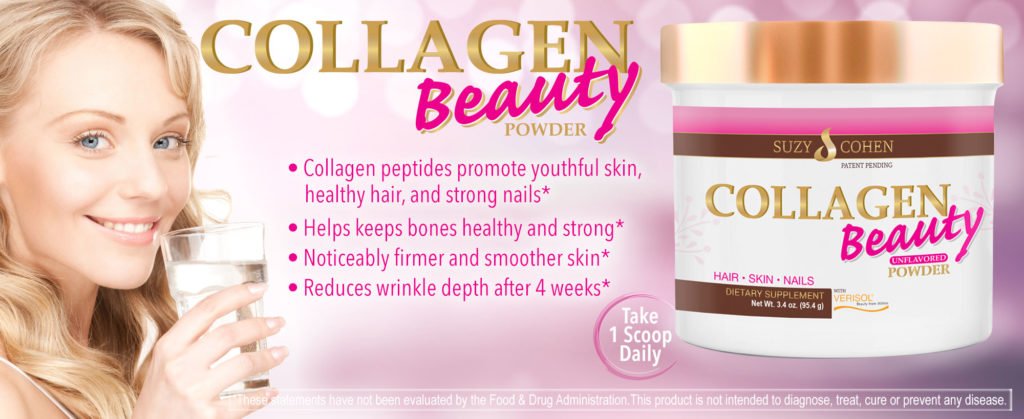
Collagen for Brittle Nails and Fine Lines
If you have brittle nails, thinning hair, fine lines, a loss of muscle mass, joint, tendon, or ligament problems, or even irritable bowel syndrome (IBS), it’s likely that you’re low in collagen, and probably several different types of collagen, but it’s hard to say. It’s not a given. Those issues could also be caused by food allergens, various diseases, a deficiency in B vitamins or thyroid hormone, estrogen, testosterone, or DHEA.
That last one about IBS throws everyone off. I know, it’s hard to believe but it’s true. Collagen deficiency may be the result of damage to the intestinal lining due to excessive permeability, but it could also cause IBS because as you recall, to make the collagen protein, you have to extract those peptides from the protein you eat at each meal. You also need to extract minerals, vitamin C, and other cofactors that drive these metabolic reactions in the body. A healthy body starts with a healthy gut.
The Impact of Poor Gut Function
If you can’t absorb well due to a leaky gut (increased intestinal permeability) you will become deficient in the very peptides that you need to make collagen, which is useful to heal stomach ulcers, repair the lining, and aid stomach acid secretion.
Most people don’t realize that this impressive protein is needed to prevent excessive gastric acid secretion which leads to also acid reflux, heartburn, stomach ulcers, and pain. A deficiency could perhaps cause, or contribute to this problem and it would never be discovered during an endoscopy.
Most women who take collagen supplements are taking it for its beauty aspects. Keep in mind that there are only a few specific types of very tiny peptides that are recognized by your fibroblast cells in the dermal layer of your skin.
If, and only if recognized, are your cells capable of being provoked to increase their own collagen metabolism?
There are 5 different kinds –> Type I, II, III, IV, and V.
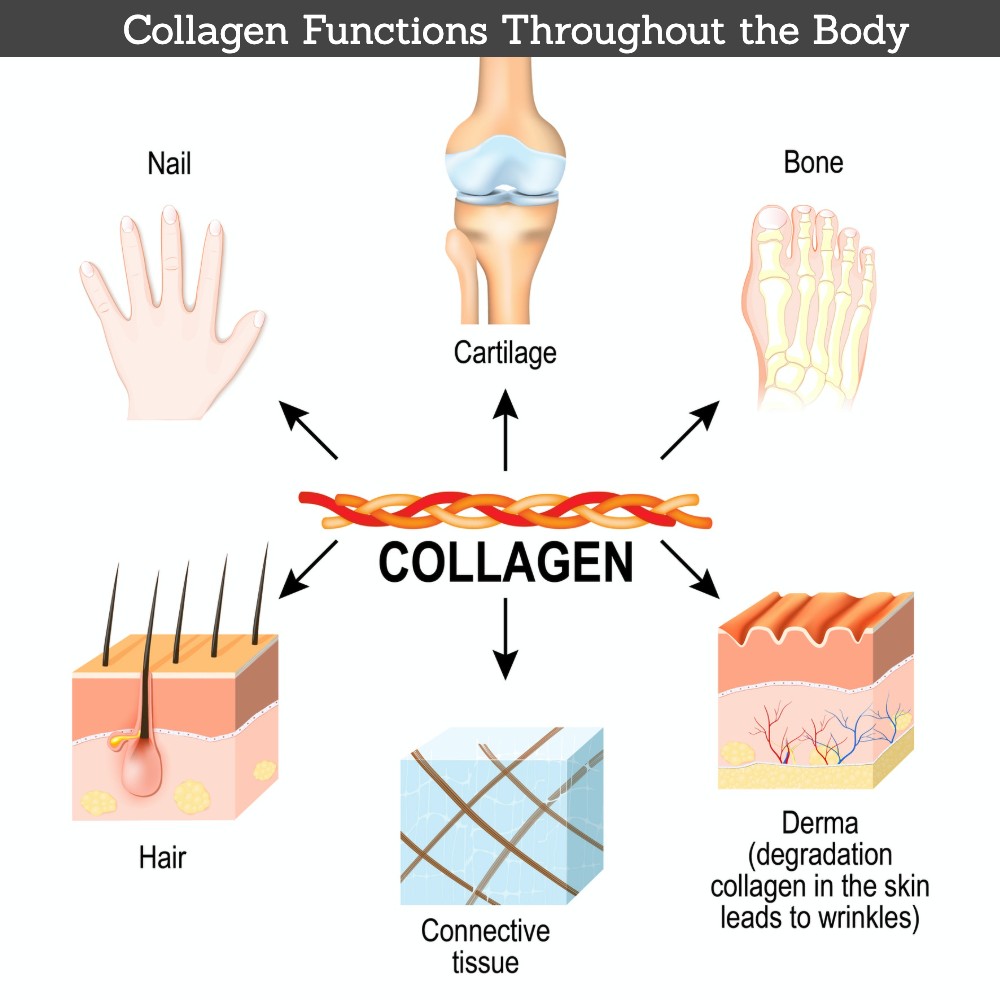
Type I and III are useful in terms of beautifying your skin, hair, and nails.
You see over 90% of your collagen (made by you) is Type I and III. Type II is actually for your bones and joints; it’s what supports and helps with joint aches and pains and this type doesn’t work for beauty needs. You will often find this in dietary supplements geared at flexibility and joint health.
The cells are simply seeking to make collagen from these tiny peptides and offset what you’ve lost through aging, UV damage, and other negative environmental influences.
If you’re taking the correct, clinically-useful form of collagen (or applying it), you will notice that your skin cells produce more. This will be evidenced by a reduction in fine lines, a more hydrated, plump look to your skin, stronger nails, perhaps faster growing and softer hair… plus more compliments from your friends.
If you make a lot of collagen, like a 20, or 30-year-old person does, you can see that in the youthful look of skin, hair, and nails. Kids have delicious chubby cheeks because they have a ton! As you age, the reduction shows up in these particular areas of the body.
No matter what your age is, you always want to look your absolute best, and I believe in collagen peptides. I only suggest that you research the vast array of products on the market today, and choose one that is right for you. Remember, if you’re going for beauty, the Type matters. You want Type I and III for this purpose. If you’re going for joint support, Type II is what you’ll want to get.
Theoretically, if you could take off your skin and dry it out, more than 80 percent of its weight would be from pure collagen! That’s how critical it is to your skin. You also need this natural protein for healthy bones, muscles, ligaments, tendons, and joints.* And then there’s your blood-brain barrier, which requires the special protein to protect your brain from systemic toxins.*
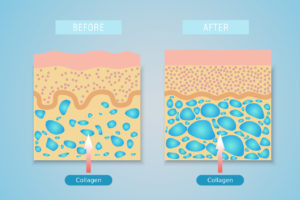 7 Important Facts
7 Important Facts
Certain types of collagen support joint flexibility*
It supports the structure of the dermis (the thick layer of living tissue just under the skin)*
It improves the elasticity and appearance of the skin*
It can decrease the discomfort associated with joint deterioration*
It’s known to reduce the visible signs of aging*
It is thought to reduce the appearance of cellulite in some individuals*
Benefits of Collagen
Elasticity improvement*
Wrinkle reduction* (Verisol® brand is used in Collagen Beauty Powder for this reason)
Cellulite reduction*
Faster nail growth*
Less fingernail chipping depending on the Type you take*
It will promote the elasticity of your skin*
Enhance your body’s own production*
It will improve elastin production*
It helps improve skin tone*
It helps decrease the reduction of wrinkles and fine lines*
It helps reduce eye wrinkles*
It will promote the appearance of smoother skin*
It will increase skin density*
Making sufficient amounts of collagen (or being young!) will significantly increase your skin’s moisture, resulting in noticeably firmer and smoother skin.* In addition, oral supplementation of high-quality peptides supports healthy joints, flexibility, and cartilage.*
Visit the link for the full article on: Collagen is Your Own Anti-Aging Compound

Suzy Cohen, has been a licensed pharmacist for over 30 years and believes the best approach to chronic illness is a combination of natural medicine and conventional. She founded her own dietary supplement company specializing in custom-formulas, some of which have patents. With a special focus on functional medicine, thyroid health and drug nutrient depletion, Suzy is the author of several related books including Thyroid Healthy, Drug Muggers, Diabetes Without Drugs, and a nationally syndicated column.
